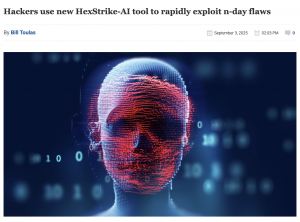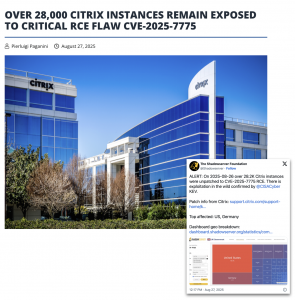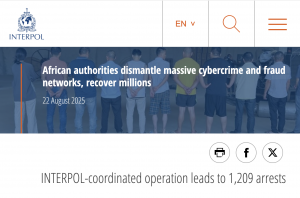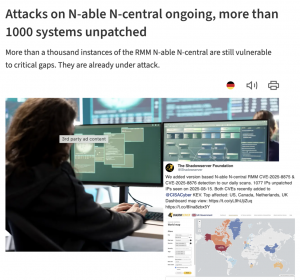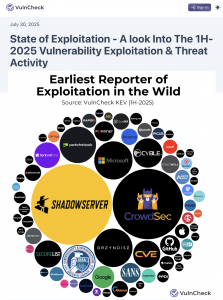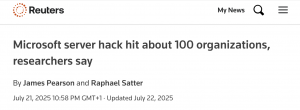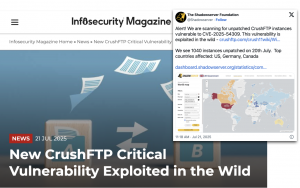In a sweeping INTERPOL-coordinated operation, authorities across Africa have arrested 1,209 cybercriminals targeting nearly 88,000 victims. The crackdown recovered USD 97.4 million and dismantled 11,432 malicious infrastructures, underscoring the global reach of cybercrime and the urgent need for cross-border cooperation. Operation Serengeti 2.0 (June to August 2025) brought together investigators from 18 African countries and the United Kingdom to tackle high-harm and high-impact cybercrimes including ransomware, online scams and business email compromise (BEC).
The operation was strengthened by private sector collaboration, with partners providing intelligence, guidance and training to help investigators act on intelligence and identify offenders effectively. Operation Serengeti 2.0 was held under the umbrella of the African Joint Operation against Cybercrime, funded by the United Kingdom’s Foreign, Commonwealth and Development Office.
Operational partners:
Cybercrime Atlas, Fortinet, Group-IB, Kaspersky, The Shadowserver Foundation, Team Cymru, Trend Micro, TRM Labs and Uppsala Security.
Participating countries:
Angola, Benin, Cameroon, Chad, Côte D’Ivoire, Democratic Republic of Congo, Gabon, Ghana, Kenya, Mauritius, Nigeria, Rwanda, Senegal, South Africa, Seychelles, Tanzania, United Kingdom, Zambia and Zimbabwe.


